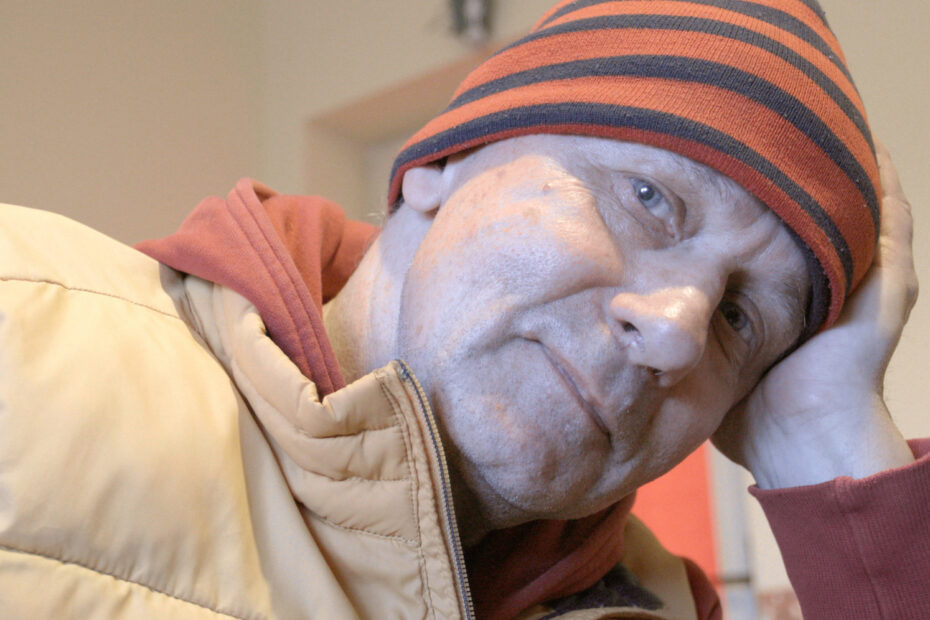Goran Pavljašević, in some distant past we categorize as “before the war,” was a stage manager in Tuzla and spent his time happily in his hometown of Husino. During the war, he moved to Pula, continued working as a stage manager, and began building a new identity, far from the small mining town. Twenty years ago, he had a stroke. Since then, he has lived a new life. Who is Goran today? A former Bosnian? A former stage manager? A stroke survivor? An immigrant? A refugee?
Branko Šimić tells the story of a lost identity through the tale of his childhood friend. The questions that often trouble ex-Yugoslav cinematographies, such as who we are today and if we are something completely different from yesterday, did we actually exist yesterday, are presented by Šimić in a humane, rather than philosophical, way. In Brazil’s House, all the identities that the main character holds stem from a long-ago photograph with a Husino miner.
Šimić’s choice of the main character inevitably stylistically shapes the film. A documentary film, which often depends on the confession of the main character, suddenly becomes like a musical composition. Pavljašević communicates using only two syllables. The rhythm with which he utters them, his facial expressions, and gestures indicate what our character wants to convey. Suddenly, this smiling man, who faces his past without words, becomes an ideal representative of all of us who have lost ourselves in the transition from one system to another, from one identity to another, from one life to another. The fact that the syllables we most often hear are “ma-ma-ma” additionally, though unintentionally, takes us back to the period when we used them while running into our childhood homes.
Despite Šimić’s desire to address identity, Brazil’s House primarily leaves the impression of a film about a fascinating man. Not about a fascinating former boy, former stage manager, or refugee, but about a man who lives with a smile on his face even though it seems he has no reason to. If you are tired of all our identities and would rather avoid another film about them, you will still want to see the film about Goran Pavljašević.




